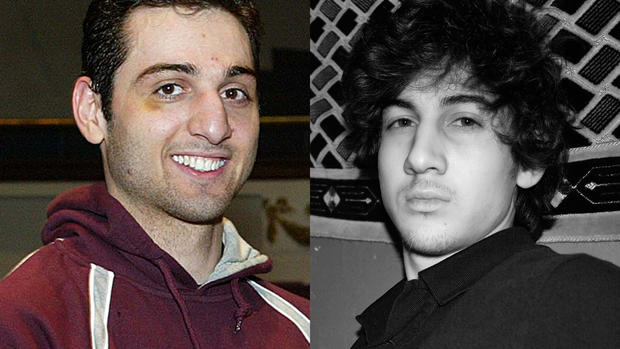Intel report: No missed opportunities in Boston attack
WASHINGTON - A review of how the government's intelligence agencies handled information they had before the Boston Marathon bombings last year has concluded that it was impossible to know whether anything could have been done differently to prevent the attack.
Three people died and more than 200 others were injured in two explosions during the Boston Marathon on April 15, 2013. Two ethnic Chechen brothers are accused of carrying out the attacks. Tamerlan Tsarnaev died in a police chase and his brother, Dzhokhar, has pleaded not guilty to 30 federal charges, including using a weapon of mass destruction.
The Obama administration briefed Congress on Thursday on the Intelligence Community Inspector General's review.
- Federal prosecutors to seek death penalty for suspect in Boston Marathon bombings
- Boston Marathon security presence to double this year
"We will always ask ourselves what more we could have done to prevent this or another tragedy. What we may never understand is why the Russians didn't share more with us to aid in the FBI's investigation," said Rep. C.A. Ruppersberger, the top Democrat on the House Intelligence Committee.
Highlighting Russia's role in potential intelligence failures comes as relations between the two countries are the worst they've been since the Cold War, the deterioration coming over the past year. Russia's reluctance to share information with the U.S. government that might have helped prevent a terror attack on American soil was one of the first major cracks in the relationship.
Members of Congress have grown increasingly skeptical about the effectiveness of U.S.-Russian cooperation on law enforcement or other matters.
The Russians told U.S. officials that they secretly recorded a telephone conversation in 2011 in which Tsarnaev vaguely discussed jihad with his mother, which The Associated Press first reported weeks after the attack. In another conversation, the mother was recorded talking to someone in southern Russia who is under FBI investigation in an unrelated case, officials have said.
Rep. William Keating, a Massachusetts Democrat and member of the House Homeland Security Committee, said what the Russian government did or did not do is less critical than any missed opportunities by U.S. law enforcement.
Complete CBSNews.com coverage: Boston Marathon bombings
Russia has been inconsistent in how much information it shares with the U.S. on counterterrorism issues, said David Rubincam, the FBI's legal attache in Moscow from May 2011 through October 2012. Rubincam has since retired from the bureau. He was interviewed by the intelligence community's inspectors general over the past year.
"There were things that they would be more forthcoming on and things that they would just not respond to," Rubincam said of Russian intelligence officials.
Tsarnaev was one of many leads the FBI was pursing based on Russian intelligence, he said. When the Russians asked the FBI in March 2011 to look into Tsarnaev, the FBI did. The bureau also asked the Russians whether they had any more information on Tsarnaev that they could share with the U.S., but Russia was unresponsive.
